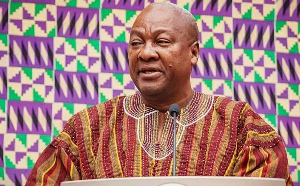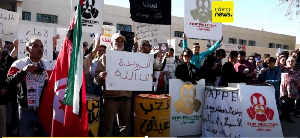I can’t quite work out what the Ghanaian attitude to money is. It seems not to be the acceptable thing to admit to having any money. Indeed, the default position is to claim to be poor.
Just cast your mind on to the number of people you know who have been burgled and the amounts involved and you would find that people are poor until they get burgled.
I recall a famous Ponzi scheme that went bust in this country back in the 1990s. It turned out that gardeners, drivers’ mates and housekeepers who had been claiming extreme poverty up until then had lost impressive amounts of money to the fraudsters. They would never have admitted to having a thousand cedis and yet they had lost GH¢10,000 in a Ponzi scheme.
When someone steals GH¢500 or GH¢5,000 from your bag, you seem to be expected to say the money was not really yours but belonged to some other person and you were only keeping it in safe custody.
But it is not this type of money I am talking about, I am talking real, serious money. Why do we go to such lengths to hide wealth? It is very difficult to find anyone who would admit to being rich in this country.
I keep reading the Forbes magazine in the hope I would find some Ghanaian millionaires being featured and I haven’t found one yet. I used to say that there simply isn’t that kind of money in Ghana for us to breed millionaires of the Nigerian kind. But then I find Tanzanians, Ethiopians, Sudanese being featured in magazines as being rich and I wonder. These are countries that are supposed to be poorer than Ghana and how come they are producing millionaires and we can’t?
Could it be because we, as a people, are so reluctant to pay taxes and that is the inhibiting factor? You can’t admit to being a millionaire when the tax authorities have not heard from you.
Salaries and wages
But maybe I am starting from the wrong end. Why are we so reluctant to make salaries even of public officials, public? Our public finances are in a terrible mess, we are told because we are using about 70 per cent of revenue to pay salaries and wages and yet nobody knows how much anybody earns. Nobody admits to being well paid. And even if you know the salary, that is only half the story, as what is taken home could be 10 times the stated salary.
There have been many attempts at what is called, consolidation, which entails combining all allowances into a basic salary that is taxed. Somehow, that never seems to work and before long, allowances appear again and the take-home pay bears no relationship to what is said to be the salary.
Why for example, are official vehicles and fuel and official housing and security and all the other things that are given to officials not computed as part of the earnings?
It seems to me we need to undertake a rebasing exercise in the salary and wages department. Just as we became a middle-income country overnight, after the rebasing of the economy, we might well discover that what people are paid is completely different from what the figures say they are currently being paid.
The Americans, for example, know exactly how much they spend on their President. Since 2001, the US President has earned a $400,000 annual salary, along with a $50,000 annual expense account, a $100,000 non-taxable travel account, and $19,000 for entertainment. In the White House, there are clear distinctions made between the official and the private and this extends to when Barack Obama sits down to dine with his family in the evening. If it is an official dinner, the state pays for it, if it is a private dinner, he pays for it. The same goes for telephone calls, when Barack Obama makes private calls, he pays for them and the state pays for the official calls.
It is impossible to find out how much we spend on our President and not surprisingly it is equally impossible to find out how much is spent on other people in public office.
True accounting
I believe we hesitate to make a true accounting of what we spend on wages and salaries because we do not want to face up to the reality of what we spend. This enables us to continue to hide behind the inadequate pay mantra.
For years, it was an unstated axiom that the police were corrupt because they were badly paid. After the single-spine pay adjustments, police pay was said to have dramatically improved, but no one knows the figures and therefore there cannot be an open and logical discussion about whether the police pay problem has been resolved or not. Since we do not know how much they are paid, the corruption problem continues to be linked in people’s minds with the pay problem.
Our Members of Parliament have a problem of being perceived by their constituents as having lots of money. Why can’t the pay and emoluments of the representatives of the people be made public and is it not possible there might be less pressure on them if everybody knew how much they were paid?
Why can’t the pay and emoluments of members of the judiciary be made public, so we stop speculating on how much bribe a judge has taken when we see the house he is building?
I remember when I was involved in pay negotiations for university lecturers. It was generally agreed that the lecturers could not be expected to stop the amount of part-time work they were doing, unless something dramatic was done about their pay. They were taking home the equivalent of 100 US dollars a month at the time.
Something dramatic was done about the pay, but it involved a lot of financial engineering and allowances to get them to 1,000 US dollars a month, and part of the deal was not to say publicly how much they were taking home. The financial engineering meant their real salaries were not much improved and their pensions therefore remained dramatically low and because the pay increase was kept quiet, you couldn’t insist publicly that they stop the part-time work.
The preoccupation with hiding how much people make extends to the private sector in our country. In other parts of the world, the banks would be announcing how much bonus they are paying their staff, how much footballers are being paid, but in Ghana the private sector joins in the game of hide your wealth.
I recall another difficult negotiation I was involved in; this time with students during the establishment of the Students Loans Scheme when the suggestion was to determine those who would qualify for the loans. “We are all poor,” the students assured me. In Ghana, the refrain seems to be: “We are all poor.’ The truth is some people are rich and some others are very rich and many are poor. I wonder who is being deceived.
This article was published in April last year.
Opinions of Thursday, 2 June 2016
Columnist: Elizabeth Ohene














